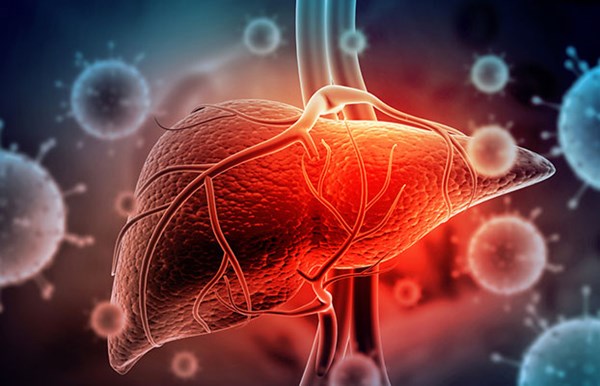Article
Walayat S, Shoaib H, Asghar M, Kim M, Dhillon S. Role of n-acetylcysteine in non-acetaminophen-related acute liver failure: an updated meta-analysis and systematic review. Ann Gastroenterol. 2021;34(1):1-6.
BACKGROUND
N-acetylcysteine (NAC) is the first-line agent for treatment in acute acetaminophen overdose, functioning by repleting glutathione for the liver to use to neutralize the toxic metabolite of acetaminophen metabolism, NAPQI.1 However, the use of NAC outside the realm of acute acetaminophen overdose for other causes of acute liver failure (ALF) is not as well described. In 2011, the American Association for the Study of Liver Diseases published guidelines suggesting NAC may be beneficial in non-acetaminophen acute liver failure. This statement was based on a single RCT, meta-analysis and systematic reviews that either were considered inconclusive or did not demonstrate mortality benefit.2,3 Given the grave sequelae of ALF, an updated investigation into whether the use of NAC can be utilized as an adjunct treatment in patients with NAALF was warranted. The study above provides evidence that suggests an overall improved survival rate with NAC in NAALF patients.
OBJECTIVE
To re-evaluate and determine the efficacy of n-acetylcysteine in non-acetaminophen-related acute liver injury.
DESIGN
Retrospective meta-analysis and systematic review of pooled data from 7 clinical trials
TRIAL SELECTION
Inclusion Criteria
- Prospective and Retrospective studies
- Age: neonate to adult
- NAC orally or IV
- Acute liver failure defined as:
- Abnormal liver enzymes AND elevated international normalized ratio (INR) WITH or WITHOUT encephalopathy
- *In a patient who previously had no liver disease
Exclusion Criteria
- Non-English articles
- No outcomes reported
- Review articles or published as abstracts only
OUTCOMES
Primary
- Overall survival rate
Secondary
- Difference in length of hospital stay
- Transplant-free survival
- Percentage of patients who did not receive a transplant and survived.
- Post-transplant survival
KEY RESULTS
Primary outcome
- Odds of survival 1.77 times higher (95% CI 1.30-2.41; p= <0.001) in the NAC group compared to the control group.
Secondary outcomes
- Transplant free survival favored the NAC group compared to control group, OR 2.85 (95% CI, 2.11-3.85; p = <0.001)
- Post-transplant survival favored the NAC group compared to control group, OR 2.44 (95% CI 1.11-3.57, p=0.03)
- Length of stay was increased in the control group compared to NAC group, mean difference 7.79, (95% CI 6.93-8.66, p = <0.001)
STRENGTHS
- Literature review and data extraction by 2 independent authors
- Broad etiologies of acute liver failure (drug-induced, viral, autoimmune, metabolic, other)
- Only 5% of patients in this meta-analysis had drug-induced liver failure, supporting the hypothesis that NAC is useful outside of drug-induced liver failure.
LIMITATIONS
- Only 2 of the 7 studies were randomized controlled trials.
- Most studies were single-institution, limiting generalizability.
- Children and the elderly could differ in causes of acute liver failure and limit generalizability to the greater population between these age groups
- 6 of 7 studies had NAC was given IV, leaving the question open for oral NAC
- Time frame of studies spans broad time periods which lends itself to bias in that clinical practice was different in the 1990s compared to now.
EM TAKE-AWAYS
NAC is well known to emergency medicine physicians as the antidote in acute acetaminophen ingestion. The scope of use for this medication beyond that is often not considered, such as in other etiologies of acute liver failure like viral hepatitis, infection, autoimmune, etc.
As demonstrated by this meta-analysis, the data is difficult to come by, however, as more comes to light, the signal within suggests NAC has more to offer than just an antidote to acute liver failure in the setting of acetaminophen overdose.
Other causes of acute liver failure are inevitably going to present in the emergency department and acknowledging that NAC likely has a place in the care of these patients is important to consider. As always, more data is needed, but with NAC’s low side effect profile and upside in the setting of acute liver injury and failure, it should at least be crossing the minds of emergency physicians early on for these patients.
References
- Ershad M, Naji A, Vearrier D. N Acetylcysteine. [Updated 2020 Jun 28]. In: StatPearls [Internet]. Treasure Island (FL): StatPearls Publishing; 2021 Jan-. Available from: https://www.ncbi.nlm.nih.gov/books/NBK537183/.
- Chughlay MF, Kramer N, Spearman CW, Werfalli M, Cohen K. N-acetylcysteine for non-paracetamol drug-induced liver injury: a systematic review. Br J Clin Pharmacol. 2016;81:1021-1029.
- Hu J, Zhang Q, Ren X, Sun Z, Quan Q. Efficacy and safety of acetylcysteine in “non-acetaminophen” acute liver failure: A metaanalysis of prospective clinical trials. Clin Res Hepatol Gastroenterol. 2015;39:594-599.




